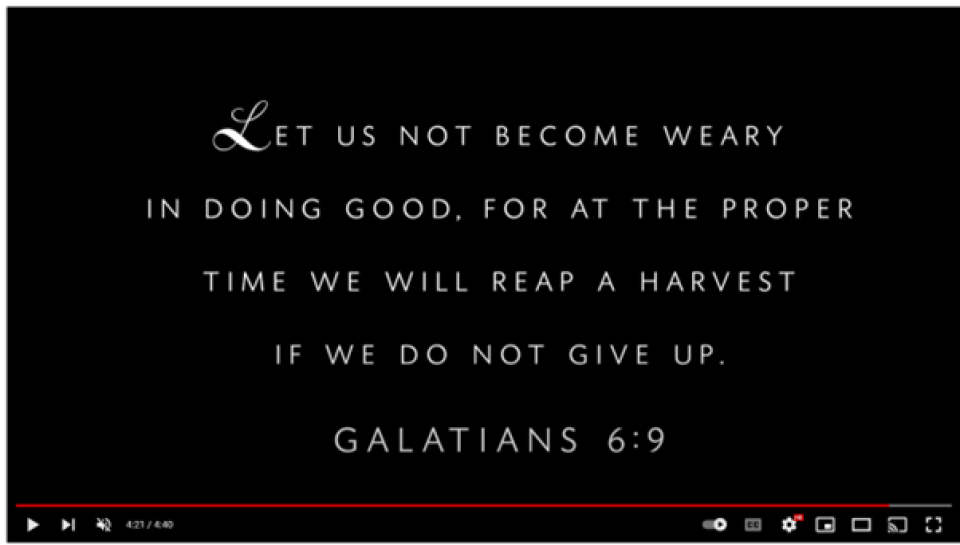Looking Back on a Job Well Done
From the day Pasefika Proud was named back in 2011 Marie Schmidt played a leading role. But, after 12 years with Pasefika Proud, and 20 plus years before that working in the Ministry of Social Development, Marie has moved on to a new challenge.
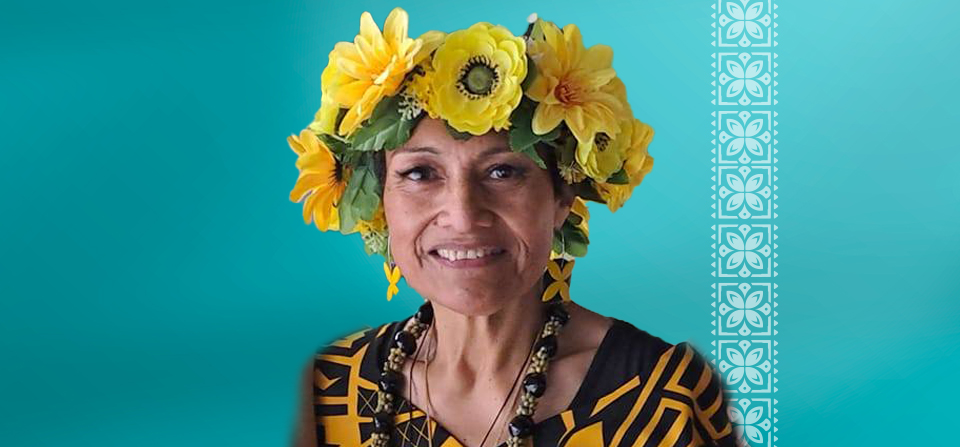
Back in 2011, the knowledge of what worked and what didn’t in the family violence prevention space was all new, not only to Pacific providers but also to officials in government agencies.
As Marie remembered, it was challenging as there wasn’t a lot of evidence to inform government ‘if we do it this way – which is the Pacific way – it works for us,’ and it was going to be a complex long-term journey rather than an easy quick fix.
‘’Family violence prevention approaches needed changes within mindsets and norms, different approaches for different ethnic groups, and, indeed, different cohorts within those ethnic groups, young people for example,’’ she said.
‘’What would work in, say, the Tongan community, may not work in the Samoan community where the approach to family violence prevention and how to achieve wellbeing may be totally different.’’
So, the journey for Marie, and Pasefika Proud, was gradual as they gathered information, socialised the protective factors that made families strong, and put into place the parts they had seen work well.
Marie always understood the complexity of the task. But, she said, the Nga Vaka o Kaiga Tapu Family Violence Prevention Frameworks, launched in 2012, provided the platform to instigate conversations in seven Pacific communities of how they would approach solutions to addressing family violence. Frameworks were developed with the Cook Island, Fijian, Niuean, Samoan, Tokelauan, Tongan and Tuvaluan communities. The Kiribati framework was launched in 2014.
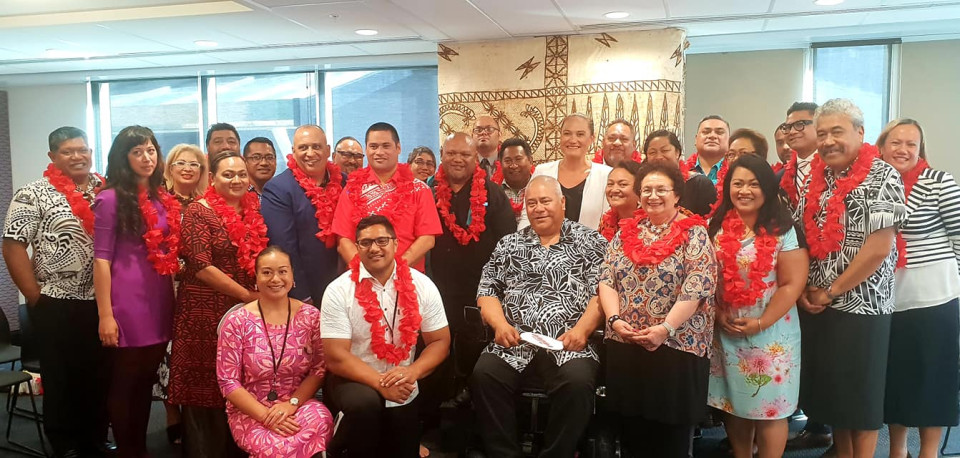 Marie pictured centre to the right of Minister Carmel Sepuloni and other Members of the Pacific Steering and Reference Group - Marie was a member of the Pacific Steering Group set up to ensure there were competent and experienced Pacific leaders that could govern and steer the successful development and implementation of the strategy and action plan.
Marie pictured centre to the right of Minister Carmel Sepuloni and other Members of the Pacific Steering and Reference Group - Marie was a member of the Pacific Steering Group set up to ensure there were competent and experienced Pacific leaders that could govern and steer the successful development and implementation of the strategy and action plan.
Marie has fond memories of the Pasefika Proud work she has been involved with, some of which included:
- Mobilising five Pacific nations (Kiribati, Tuvalu, Tokelau, Niue and Fiji within Aotearoa to initiate the development of their own inaugural national family violence prevention and wellbeing strategies. For some of the nation’s i.e., Fiji and Niue, the process provided the opportunity to establish their national leadership structures for the first time and for Tokelau, Tuvalu and Kiribati having their first own national strategy/plan for the first time.
- Project manager of the development of the Nga Vaka o Kaiga Tapu conceptual frameworks
- Leading the development and launch of the Pasefika Proud Pathways for Change Framework, (Pacific family violence prevention strategy) in 2020.
- Signing off the MOU between MFAT and MSD alongside the Tokelau community, to take the Tokelau Family Violence Prevention Programme, Kaiga Maopoopo, to Tokelau and train people from the atolls (pictured below).
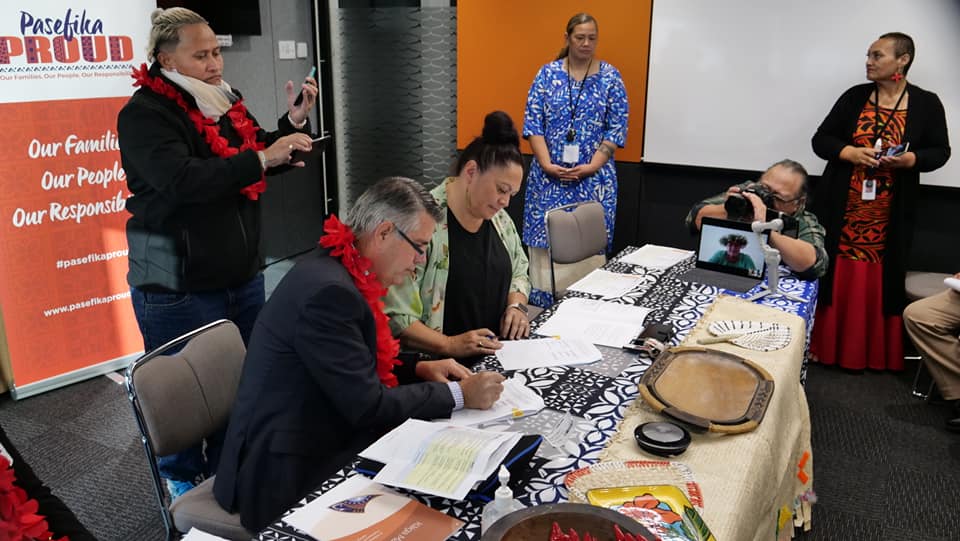 Signing off the MOU between MFAT and MSD alongside the Tokelau community
Signing off the MOU between MFAT and MSD alongside the Tokelau community
Marie is proud of the way Pacific providers around Aotearoa have gone ‘’above and beyond’’ in applying prevention approaches in their work, whether it was in sharing information/concepts or in delivering family violence services.
‘’Every provider is on their own journey and the key is working to the pace of not only our providers, but also our communities,’’ she said.
‘’If I am going to single someone out for praise, it must be the former Minister Tariana Turia who fought with her Cabinet colleagues back in 2010, to get the Pacific funding required so Pacific peoples and communities could determine for ourselves how we approached and applied family violence prevention solutions.’’
While Marie is quick to acknowledge others for their Pasefika Proud contributions, it comes as no surprise to those who know her, and the work she did, that that praise comes back her way from those who saw her work first-hand.
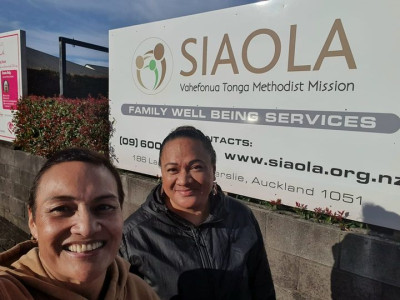 The CEO of the Siaola Vahefonua Tonga Methodist Mission, Kathleen Tuai-Ta’ufo’ou (pictured left with Marie) is one such person.
The CEO of the Siaola Vahefonua Tonga Methodist Mission, Kathleen Tuai-Ta’ufo’ou (pictured left with Marie) is one such person.
The Mission, operating since 2006, is responsible for the education, health, and socio-economic development of Tongan Methodist church members countrywide, and Kathleen has no doubt about the importance of the role Marie has played.
“(She) has been instrumental in working with Siaola ... moving the narrative away from Family Violence Prevention to Famili Va Lelei (Family Wellbeing). The de-stigmatisation of a whole community using strength-based language was the beginning of an equitable partnership between government and community,” Kathleen said.
“We are thankful to Marie, and MSD, for hearing the voices of our community.”
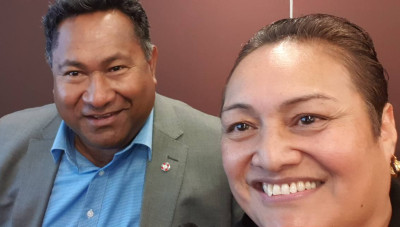
Those words are backed up by a well-respected member in the Fijian community, Sai Lealea (pictured right with Marie), who most recently worked with Marie, through Pasefika Proud, in the delivery of the National Fijian Wellbeing Plan 2022.
He said it had been a pleasure to get to know and work with Marie, who he described as “energetic and passionate,” over many years in both the community and government.
“She is always down to earth and courageous in providing a community perspective in the advice and programmes she is involved with, such as Pasefika Proud,” Sai said.
Another wanting to have their say on the influence Marie has had in the Pacific community over the years is Tenise (Les Lehi) Atoni, the National Chair for Atafu and one of the leaders on the National Tokelau Leadership Group.
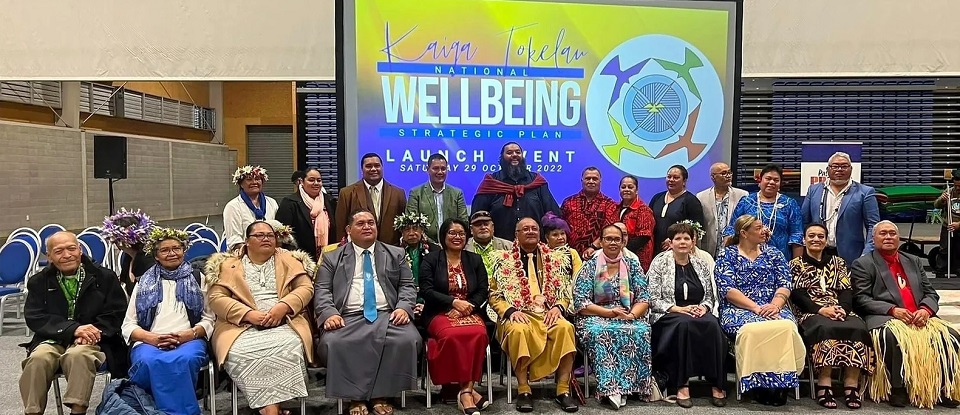 The Kāiga Tokelau Wellbeing National Strategic Plan 2022–2026 launch Oct 2022 - Marie pic front row second from left. Tenise (Les Lehi) Atoni pic back row first on right.
The Kāiga Tokelau Wellbeing National Strategic Plan 2022–2026 launch Oct 2022 - Marie pic front row second from left. Tenise (Les Lehi) Atoni pic back row first on right.
Les, who was awarded the NZ Order of Merit in 2022, worked with Marie on their first Atafu organisational strategic plan ‘Te Kanava’ which covered the 2017-2021 period. He also had the privilege of working with Marie by leading the project management of the development of the Kaiga Tokelau Wellbeing National Strategic Plan for 2022-26. This was the first time all of Tokelau communities in New Zealand had come together to have input and contribute to a national wellbeing plan that would benefit all Tokelau people.
“Marie has worked with the Tokelau communities and leaders for many years and has always been a strong pillar who the leaders trust and can rely on to bring us to the table, or facilitate with us solutions on how to mobilise our communities for the benefit of Tokelau people. She was an absolute champion, opening up new doors for our Tokelau communities”
Sagaa Malua, secretary of the Tuvalu Auckland Community Trust, said Marie always showed “dedication and passion,” and praised her for giving the community the freedom to make its own national plans and always being there to guide them.
“She showed a love for us, and we in turn have grown to love her too. (We) are blessed tenfold ...because of intelligent and committed Pasifika people like Marie working hard in government to make sure our voices are heard and that we get the resources we need to build our communities,” Sagaa said.
But of course, it was never all plain sailing, Marie said working in such a role meant there were always setbacks and struggles, the biggest of which was the constant battle for funding.
‘’There were never enough funds to go around for operational, external and our communities. Teams came and went. Many times, I was a team of one for the Pasefika Proud team and covered the whole country by myself, or there would just be me and a manager,’’ Marie said.
‘’I’m pleased to see, that over the past 2-3 years, Pasefika Proud has managed to appoint more staff and the team has been a part of the MSD Pacific and Community Capability Programmes team under Serena Curtis, the General Manager since 2019.’’
Marie is respected by communities of all faiths and cultures around the country she has engaged with during her time with Pasefika Proud.
She never wavered in her belief that authentic systemic change begins within each ethnic Pacific community where its people are loved, supported and proud of who they are; where people can be assured their culture and spiritual beliefs are important, and worthy of understanding and respect.
Marie has taken on a role with the Ministry of Housing, Urban and Development, Te Kahui Maori team to build and strengthen HUD’s approach to Pacific housing. But she will never forget her time with Pasefika Proud.
‘’Pasefika Proud is a movement, but the people must understand what the purpose is, why the change is needed, believe in it, and own it themselves to take it forward,’’ she said.
‘’The Ministry and other agencies are there to support and advise our communities. It is up to communities to take charge of their own destiny and where they want to land in addressing family violence prevention and achieving wellbeing within their families.’’
Marie’s contribution and dedication to Pasefika Proud has not gone un-noticed. She has been an integral part of the Pasefika Proud journey to uplift and inspire all our families to love and protect each other and end family violence in our communities.
We leave Marie with the final words. “Hold on, change is coming”.
REFERENCE / DOWNLOADS
Nga Vaka o Kāiga Tapu is a conceptual framework for addressing family violence in eight Pacific communities in New Zealand. It is informed by, and aligned with, the eight ethnic specific conceptual reports on addressing family violence, and a literature review. It is intended as a guide for policy writers. It defines and explains meanings of family, violence, and key concepts and principles that promote family wellbeing for the eight ethnic specific communities.
Nga Vaka o Kaiga Tapu Family Violence Prevention Frameworks:
